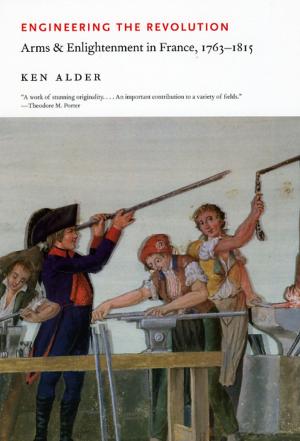Futurity
Contemporary Literature and the Quest for the Past
Fiction & Literature, Literary Theory & Criticism, European, German, American| Author: | Amir Eshel | ISBN: | 9780226924960 |
| Publisher: | University of Chicago Press | Publication: | January 14, 2013 |
| Imprint: | University of Chicago Press | Language: | English |
| Author: | Amir Eshel |
| ISBN: | 9780226924960 |
| Publisher: | University of Chicago Press |
| Publication: | January 14, 2013 |
| Imprint: | University of Chicago Press |
| Language: | English |
When looking at how trauma is represented in literature and the arts, we tend to focus on the weight of the past. In this book, Amir Eshel suggests that this retrospective gaze has trapped us in a search for reason in the madness of the twentieth century’s catastrophes at the expense of literature’s prospective vision. Considering several key literary works, Eshel argues in Futurity that by grappling with watershed events of modernity, these works display a future-centric engagement with the past that opens up the present to new political, cultural, and ethical possibilities—what he calls futurity.
Bringing together postwar German, Israeli, and Anglo-American literature, Eshel traces a shared trajectory of futurity in world literature. He begins by examining German works of fiction and the debates they spurred over the future character of Germany’s public sphere. Turning to literary works by Jewish-Israeli writers as they revisit Israel’s political birth, he shows how these stories inspired a powerful reconsideration of Israel’s identity. Eshel then discusses post-1989 literature—from Ian McEwan’s Black Dogs to J. M. Coetzee’s Diary of a Bad Year—revealing how these books turn to events like World War II and the Iraq War not simply to make sense of the past but to contemplate the political and intellectual horizon that emerged after 1989. Bringing to light how reflections on the past create tools for the future, Futurity reminds us of the numerous possibilities literature holds for grappling with the challenges of both today and tomorrow.
When looking at how trauma is represented in literature and the arts, we tend to focus on the weight of the past. In this book, Amir Eshel suggests that this retrospective gaze has trapped us in a search for reason in the madness of the twentieth century’s catastrophes at the expense of literature’s prospective vision. Considering several key literary works, Eshel argues in Futurity that by grappling with watershed events of modernity, these works display a future-centric engagement with the past that opens up the present to new political, cultural, and ethical possibilities—what he calls futurity.
Bringing together postwar German, Israeli, and Anglo-American literature, Eshel traces a shared trajectory of futurity in world literature. He begins by examining German works of fiction and the debates they spurred over the future character of Germany’s public sphere. Turning to literary works by Jewish-Israeli writers as they revisit Israel’s political birth, he shows how these stories inspired a powerful reconsideration of Israel’s identity. Eshel then discusses post-1989 literature—from Ian McEwan’s Black Dogs to J. M. Coetzee’s Diary of a Bad Year—revealing how these books turn to events like World War II and the Iraq War not simply to make sense of the past but to contemplate the political and intellectual horizon that emerged after 1989. Bringing to light how reflections on the past create tools for the future, Futurity reminds us of the numerous possibilities literature holds for grappling with the challenges of both today and tomorrow.















